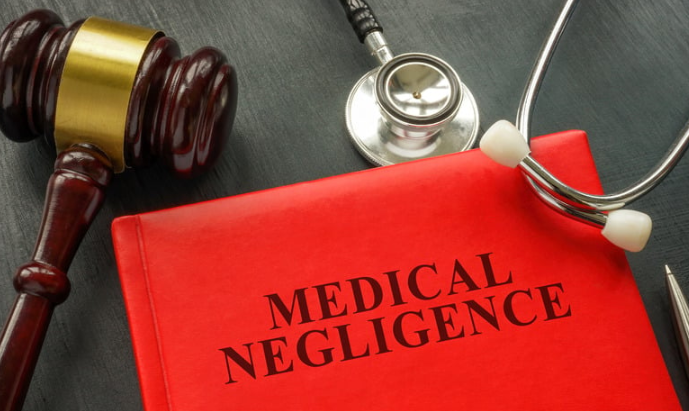
When we seek medical care, we place our trust in the hands of professionals who have sworn an oath to uphold a certain standard of care. We believe they will act with competence, diligence, and our best interests at heart.
But what happens when that trust is broken? What happens when the very people we rely on for healing cause us harm instead?
This is the unfortunate reality for victims of medical negligence, and for those in Georgia, the path to justice can be a complex and daunting one. If you or a loved one has suffered due to the careless or wrongful actions of a healthcare provider, it’s crucial to understand your rights and the legal avenues available to you.
This comprehensive guide will provide you with the information you need to take the first steps towards healing and holding those responsible accountable for their actions.
The very words “medical malpractice” can conjure up a host of emotions – anger, confusion, betrayal, and a profound sense of loss. It’s a violation of the most fundamental aspect of the doctor-patient relationship, and the consequences can be devastating, both physically and emotionally.
Victims are often left with life-altering injuries, mounting medical bills, and a future that looks very different from the one they had envisioned.
In these moments of vulnerability, it’s essential to have a staunch advocate on your side, someone who not only understands the intricacies of Georgia law but also possesses the compassion and tenacity to fight for your rights.
An experienced legal professional can be your guide through the labyrinth of the legal system, ensuring that your voice is heard and that you receive the full and fair compensation you deserve.
This guide is designed to be a starting point for your journey towards justice. We will delve into the key aspects of medical negligence cases in Georgia, from the legal definition of malpractice to the types of damages you may be entitled to recover.
We will also explore the critical role that a skilled legal team plays in building a strong case and advocating for your best interests. Remember, you are not alone in this fight. There are resources and dedicated professionals who can help you every step of the way.
In Georgia, as in other states, medical malpractice is more than just an unfortunate outcome or a doctor’s mistake. It’s a specific legal concept with a precise definition. To have a valid claim, you must be able to prove that a healthcare provider acted negligently and that this negligence directly caused you harm. This may sound straightforward, but in practice, it involves a rigorous legal process and a high burden of proof.
At its core, a medical malpractice case hinges on the concept of the “standard of care.” This is the level of skill and care that a reasonably competent healthcare professional in the same field would have provided under similar circumstances. It’s not about perfection; the law recognizes that medicine is not an exact science and that not all outcomes can be guaranteed.
However, when a provider’s actions deviate from this accepted standard, and a patient is injured as a result, they may be held liable for medical malpractice.
To successfully pursue a claim, you and your legal team must establish four key elements:
It’s important to understand that not every negative medical outcome is the result of malpractice. Medicine is a complex and often unpredictable field, and sometimes, despite the best efforts of everyone involved, things can go wrong. That’s why it’s so important to have your case evaluated by a qualified legal professional who can help you determine whether you have a valid claim.

Medical malpractice can take many forms, and it can occur in any healthcare setting, from a small-town clinic to a large urban hospital. Some of the most common types of medical negligence cases we see in Georgia include:
This is by no means an exhaustive list, and medical negligence can occur in a wide variety of other situations. If you believe you have been the victim of any type of medical error, it’s important to seek legal advice as soon as possible.
In Georgia, as in all states, there is a strict time limit for filing a medical malpractice lawsuit. This is known as the statute of limitations, and it’s one of the most important legal concepts you need to be aware of. If you fail to file your lawsuit within the allotted time, you will be forever barred from seeking compensation for your injuries, no matter how strong your case may be.
In most cases, the statute of limitations for medical malpractice claims in Georgia is two years from the date of the injury or death. This may seem like a long time, but in the aftermath of a serious injury, time can pass quickly. It’s crucial to take action as soon as you suspect that you may have been the victim of malpractice.
There are a few exceptions to this two-year rule. For example, if you did not discover your injury right away, the statute of limitations may not begin to run until the date you discovered the injury or should have reasonably discovered it. This is known as the “discovery rule.”
However, Georgia also has a “statute of repose,” which places an absolute time limit on filing a medical malpractice claim. Under the statute of repose, you cannot file a lawsuit more than five years after the date of the negligent act, regardless of when you discovered the injury.
There are also special rules for cases involving minors and individuals who are legally incompetent. For example, the statute of limitations for a minor may be tolled, or paused, until they reach a certain age.
The statute of limitations is a complex area of the law, and it’s one of the many reasons why it’s so important to have an experienced attorney on your side. A qualified lawyer can help you understand the specific deadline that applies to your case and ensure that all necessary legal documents are filed on time.
If you have been the victim of medical negligence, you have the right to seek compensation for the full extent of your losses. These losses, known in legal terms as “damages,” can be divided into two main categories: economic and non-economic.
Economic damages are intended to compensate you for your direct financial losses. These can include:
Non-economic damages are designed to compensate you for the non-financial losses you have suffered. These are often more subjective and can be more difficult to quantify, but they are no less real. Non-economic damages can include:
It is important to note that in 2010, the Georgia Supreme Court struck down a law that placed a cap on non-economic damages in medical malpractice cases. This means that there is no limit to the amount of compensation a jury can award for pain and suffering and other non-economic losses.
In some rare cases, you may also be entitled to punitive damages. These are not intended to compensate you for your losses, but rather to punish the defendant for particularly egregious conduct and to deter similar conduct in the future. In Georgia, punitive damages are generally capped at $250,000, although there are some exceptions to this rule.
An experienced medical malpractice attorney can help you identify all of the damages you are entitled to and build a strong case for the maximum compensation possible.
The legal system can be an intimidating and overwhelming place, especially when you are already dealing with the physical and emotional trauma of a serious injury. That’s why it’s so important to have a dedicated and experienced legal team on your side.
A qualified Georgia medical malpractice attorney can be your advocate, your guide, and your champion, fighting for your rights every step of the way.
Here are just a few of the ways that an experienced legal team can help you with your case:
Choosing the right attorney is one of the most important decisions you will make in your case. Look for a firm with a proven track record of success in handling medical malpractice cases in Georgia.
Look for an attorney who is not only a skilled legal professional but also a compassionate and understanding advocate.
To make sure you get everything that you need and deserve for your situation, it’s important to work with an experienced accident lawyer.
At T. Madden & Associates, P.C., we have years of experience in helping the people of Atlanta recover the compensation they deserve after being injured.
Contact us today: we serve Atlanta and most major cities and counties of Georgia.